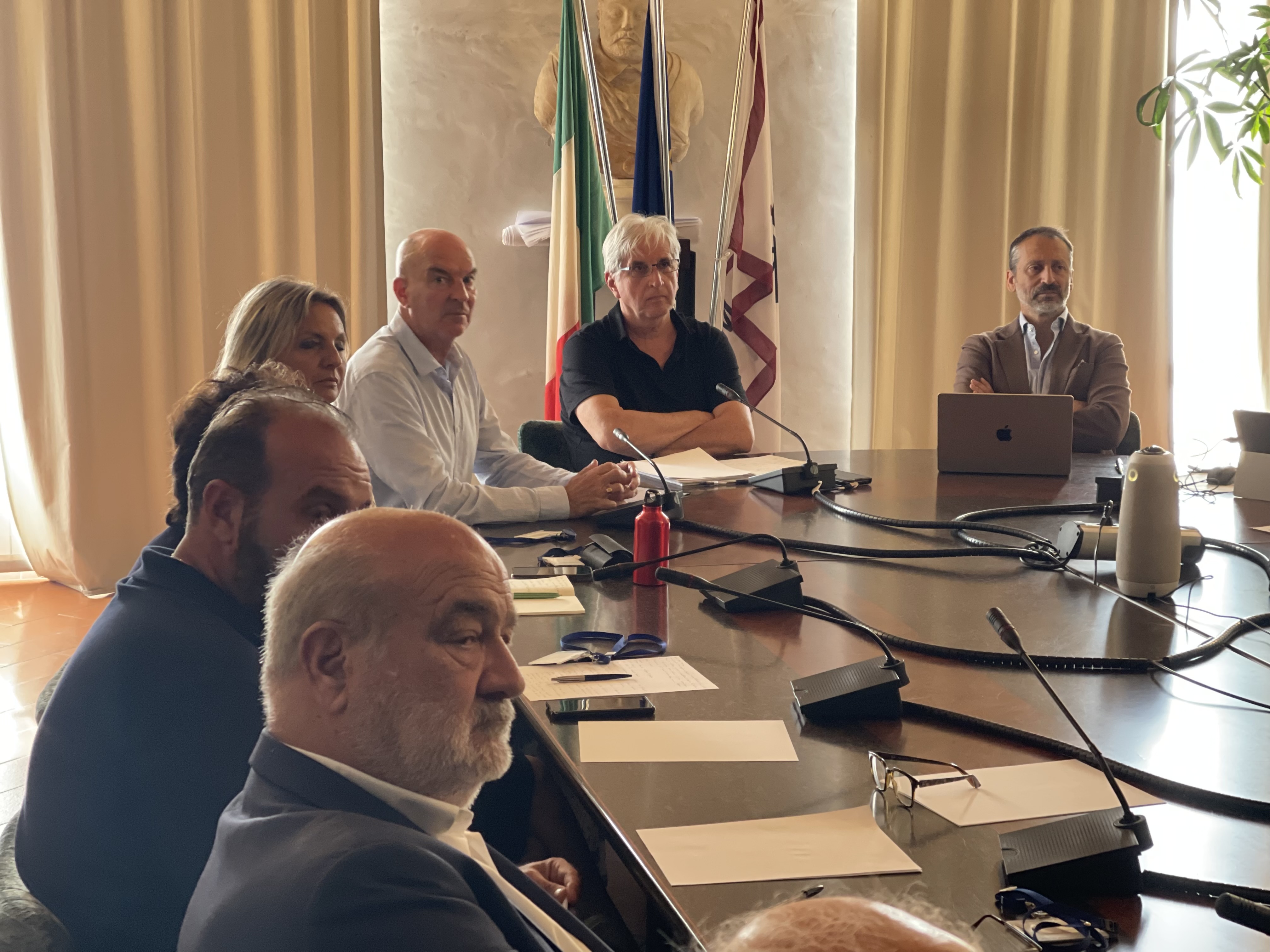MSC’s decision to withdraw its offer to take over Terminal Darsena Toscana (TDT) “doesn’t affect Livorno port’s strategies and its traffic stability.” ‘
The message that the president of the North Tyrrhenian Port Network Authority, Luciano Guerrieri, conveyed this morning to the representatives of the Partnership Body is clear. The Partnership Body had been summoned for the occasion at Palazzo Rosciano on input from trade unions.
“Whatever the reasons that led MSC to withdraw its offer, and while hoping that negotiations can resume, this doesn’t affect Livorno’s port potential,” said Mr. Guerrieri, with a conviction that is confirmed by the numerous project and infrastructural initiatives the Authority is carrying out.
“We will not change our approach. We will continue to work on managing port issues in the best possible way,” he said, pointing out that the priority is to promote the growing increasingly advanced commercial stability between operators, fully respecting the principle of free competition in a regulated market, in the hope of a gradual end to the social conflicts that have characterized part of Livorno’s port community to this day.
The priorities for the port were outlined precisely one-by-one by the President. First and foremost, the Darsena Europa infrastructure project: “On 24th June, we delivered our report to the Ministry of the Environment Commission with the answers to the numerous requests for additions from local stakeholders, 293 in all.” Mr. Guerrieri provided an overview of the amount of work which has been carried out. He said that a total of 13 reams of paper, weighing 40 kg, had been produced. “If the documentation were on paper, we would have enough A4 sheets to cover 8,000m2 of yards,” he added, pointing out that he hopes to have the EIA Commission’s feedback by September.
In the meantime, his administration is continuing to move forward with wartime debris removal operations in the areas where the mega infrastructure is being built. In addition, it has also recently contracted out the consolidation work on one of the two containment basins (for 25 million euros).
Other projects include tendering the widening of the port’s harbour access canal from 60 to 120 metres (for a total of 21 million euros), the preparation of tender documents for implementing cold ironing projects in the network ports (for a total of 77 million euros), reorganizing and optimizing the areas allocated to port activities on the eastern side of the Darsena Toscana dock, with the relocation of the CILP dockers company from the Alto Fondale Terminal, which is now nearing completion.
Initiatives for developing Vespucci Freight Village, digitalization, and the new technical-functional adjustment recently adopted by the Management Committee (with which the Port Network Authority aims to make Livorno’s port more efficient and competitive by building a mooring dock for harbour service boats at the end of the Alto Fondale quay and a tower for technical-nautical services, re-profiling the areas designated for shipbuilding, and changing the functional destination of the former Enel power station area) completes the scenario.
“These initiatives are not the only ones we are working on,” he admitted, “but I believe they provide a reassuring image of the port to our local community and the press, whose competitive development expectations differ somewhat from the commercial dynamics that dictate the interests of large shipping companies.”
The mayor of Livorno, Luca Salvetti, speaking at the partnership table, is of the same opinion: ‘The precise picture the president has given us is very reassuring,” he said. “This affair (MSC withdrawing its offer) in no way affects the port’s strategies. Terminal Darsena Toscana is, moreover, continuing to work efficiently, with encouraging results. We will closely follow the developments of this negotiation, However, there is nothing today that could lead to concern about the port’s future.
In the speeches that followed, the representatives of the port cluster all reiterated the same concept: ‘The news of MSC’s withdrawal worried us because it gave a distorted picture of the truth, that of a port in difficulty and of a terminal operator, TDT, that seemed to be closing at any moment due to the failure to complete negotiations. None of this is true,” said the provincial secretary of Filt-Cgil trade union, Giuseppe Gucciardo: ‘The port is very much alive and, thanks to all the work being carried out, it will be even more efficient in the future.”
Translation by Giles Foster

